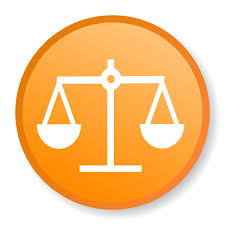even
英 [ˈiː.vən]
美 [ˈiː.vən]
- adj. [数] 偶数的;平坦的;相等的
- adv. 甚至;即使;还;实际上
- vt. 使平坦;使相等
- vi. 变平;变得可比较;成为相等
- n. (Even)人名;(法)埃旺;(德)埃文;(英)埃文
使用频率:

记忆方法
记忆“even”的方法是将它分解为“ev-ven”。想象有两个“e”如同古代的平衡杆,中间的“ven”像是中间点,两边保持“even”(均衡)。这种方法利用了视觉图像来帮助记忆单词的含义,即“均衡”或“平等”。
以上内容由AI生成, 仅供参考和借鉴
中文词源
even 平的,甚至,黄昏
1.平的,甚至,来自PIE*aim, 相似,持平,词源同emulate, imitate. 形容词用修饰副词,参照very, 真实的。
2.黄昏,来自古英语aefen, 黄昏。
英语词源
- even
-
even: [OE] Even can be traced back to a prehistoric Germanic *ebnaz, although it is not clear whether it meant originally ‘flat, level’ or ‘equal, alike’ (both strands of meaning are still present in the word, the latter in such expressions as ‘get even with’ and ‘even number’, and also in its various adverbial uses, the former in ‘even keel’, ‘even light’, etc)
- even (adj.)
- Old English efen "level," also "equal, like; calm, harmonious; equally; quite, fully; namely," from Proto-Germanic *ebnaz (cognates: Old Saxon eban, Old Frisian even "level, plain, smooth," Dutch even, Old High German eban, German eben, Old Norse jafn, Danish jævn, Gothic ibns). The adverb is Old English efne "exactly, just, likewise." Modern adverbial sense (introducing an extreme case of something more generally implied) seems to have arisen 16c. from use of the word to emphasize identity ("Who, me?" "Even you").
Etymologists are uncertain whether the original sense was "level" or "alike." Used extensively in Old English compounds, with a sense of "fellow, co-" (as in efeneald "of the same age;" Middle English even-sucker "foster-brother"). Of numbers, from 1550s. Sense of "on an equal footing" is from 1630s. Rhyming reduplication phrase even steven is attested from 1866; even break (n.) first recorded 1907. Even-tempered from 1712. To get even with "retaliate upon" is attested by 1833. - even (v.)
- Old English efnan "to make even, to make level; liken, compare" (see even (adj.)). Intransitive sense of "become even" is attested from early 13c. Related: Evened; evening.
- even (n.)
- "end of the day," Old English æfen, Mercian efen, Northumbrian efern (see eve).
权威例句
- 1. Friendship means understanding, not agreement. It means forgiveness, not forgetting.It means the memories last, even if contact is lost.
- 友情是理解,不是妥协;是原谅,不是遗忘。即使不联系,感情依然在。
- 2. He once told an interviewer that he didn't even like rock music.
- 他曾告诉一位采访者,他甚至都不喜欢摇滚乐。
- 3. Some girls may first ovulate even before they menstruate.
- 一些女孩的第一次排卵甚至可能出现在初潮之前。
- 4. His inspiration to fly came even before he joined the Army.
- 他想开飞机的念头在参军之前就有了。
- 5. I even began to exploit him in subtle ways.
- 我甚至开始巧妙地利用他。
